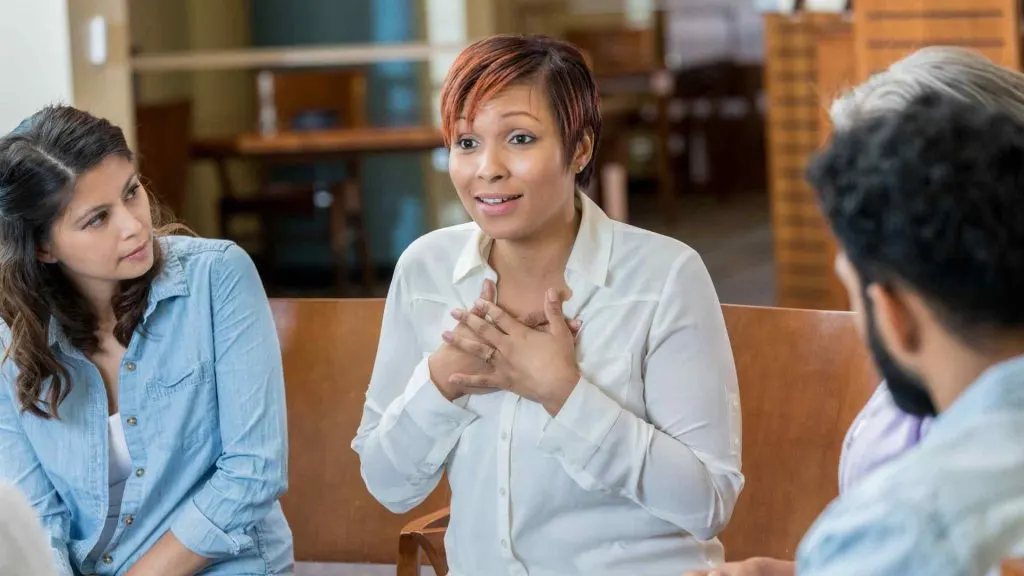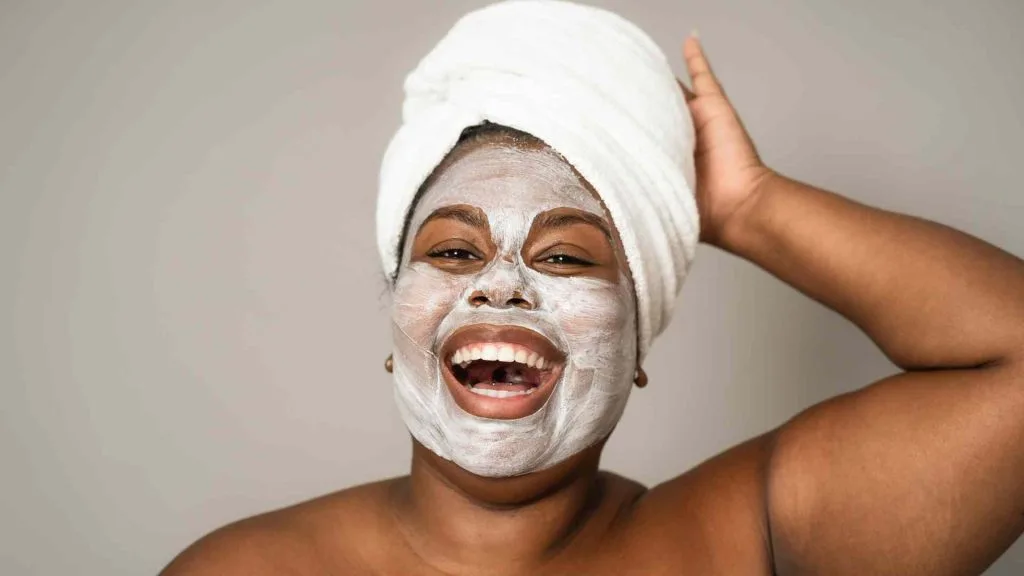Being vulnerable can be intimidating, but it is a powerful tool for building genuine connections.
In a world that often values strength and invulnerability, embracing vulnerability allows for authentic relationships to flourish. It opens the door to empathy, understanding, and deeper emotional bonds.

Understanding Vulnerability
Defining Concepts
Emotional vulnerability is the act of showing your true self, being open about your feelings and thoughts. It involves sharing openly, fostering genuine connections with others.
Vulnerability plays a crucial role in self-understanding and empathy towards others. It significantly impacts mental health by promoting emotional well-being.
Vulnerability is essential for personal growth, enhancing self-awareness and authenticity. By embracing vulnerability, individuals can form deeper relationships and connections with others.
It fosters emotional intimacy, creating a space for authentic communication and understanding. Research shows that vulnerability has positive effects on mental health, improving overall well-being.
Being vulnerable is often misconstrued as a weakness, but in reality, it requires courage and strength to be authentic.
Embracing vulnerability brings numerous benefits in both personal and professional life. Many successful individuals attribute their growth to embracing vulnerability, highlighting its role in fostering resilience and authenticity.
Importance in Growth
Vulnerability does not equate to exposing all secrets; rather, it’s about sharing authentically while respecting boundaries.
Setting healthy boundaries is crucial when being vulnerable to protect oneself from potential exploitation. Trust and discretion play vital roles in vulnerability, ensuring that personal experiences are shared responsibly.

Challenges in Vulnerability
Overcoming Fears
Common fears associated with vulnerability include fear of rejection and judgment. These fears often stem from past experiences or societal expectations.
To overcome these fears, individuals can start by practicing self-compassion and acknowledging that vulnerability is a strength, not a weakness.
Taking actionable steps such as engaging in open communication with trusted individuals can help in facing vulnerability fears.
By gradually exposing oneself to situations that require vulnerability, individuals can build confidence over time. This process involves embracing discomfort and understanding that vulnerability is essential for authentic connections.
Self-compassion plays a crucial role in facing vulnerability fears. By treating oneself with kindness and understanding, individuals can navigate through moments of vulnerability with emotional resilience.
It’s important to remember that being vulnerable does not equate to weakness but rather showcases courage and authenticity.
- Embrace discomfort
- Practice self-compassion
- Engage in open communication
- Build confidence gradually
- Seek support from trusted individuals
Real-life examples highlight the power of overcoming vulnerability fears.
Individuals like Brené Brown, known for her work on vulnerability and shame, have shared their journeys of conquering fear to embrace vulnerability fully. Their stories serve as inspiration for others striving to navigate through their vulnerabilities.
Stereotype Breaking
Emotional Stability
Contrary to common beliefs, vulnerable people are not necessarily emotionally unstable. In fact, embracing vulnerability can lead to emotional stability and resilience.
Research has shown a positive correlation between vulnerability and mental health outcomes, indicating that being open about one’s emotions can contribute to overall well-being.
Maintaining emotional balance while being vulnerable involves practicing self-awareness and setting healthy boundaries.
By acknowledging one’s feelings without judgment and seeking support when needed, individuals can navigate through vulnerable moments effectively. Vulnerability allows for genuine connections and deeper emotional understanding.
- Practice self-awareness
- Set healthy boundaries
- Seek support when needed
- Acknowledge feelings without judgment
- Foster genuine connections
Vulnerability contributes significantly to emotional well-being by fostering authentic relationships and promoting mental health awareness.
It encourages individuals to embrace their emotions openly, leading to increased self-awareness and acceptance of both strengths and vulnerabilities.

Male Expression
Addressing the misconception that men shouldn’t be vulnerable challenges societal norms that hinder emotional expression among males.
Societal expectations often dictate that men should suppress their emotions, leading to internalized struggles and mental health issues. However, embracing vulnerability allows men to connect more authentically with themselves and others.
Male figures who have embraced vulnerability have thrived in personal relationships and professional settings alike.
By breaking free from societal pressures, these individuals have demonstrated strength through openness and emotional honesty.
Tips for men navigating societal expectations include practicing self-expression without fear of judgment and seeking support when needed.
- Practice self-expression without fear
- Break free from societal pressures
- Seek support when needed
- Connect authentically with others
- Embrace emotional honesty
The benefits of male vulnerability extend beyond personal growth to enhancing professional relationships through increased empathy and communication skills.
By challenging stereotypes and embracing vulnerability, men can cultivate healthier relationships based on trust, openness, and mutual respect.

Right Time for Vulnerability
Recognizing Moments
Recognizing vulnerable moments is crucial for personal growth as it allows individuals to confront their fears and insecurities.
By acknowledging vulnerability, one can embrace authenticity and foster deeper connections with others. Being present and mindful is essential in identifying vulnerability as it enables individuals to tune into their emotions and understand their inner selves better.
For instance, during a difficult conversation with a friend or when facing a challenging decision, recognizing vulnerability can lead to meaningful breakthroughs.
In various situations, recognizing vulnerability can lead to positive outcomes such as increased empathy, stronger relationships, and personal resilience.
When individuals acknowledge their vulnerabilities, they create space for genuine connections and emotional intimacy.
Tuning into emotions and recognizing vulnerability cues involves actively listening to one’s feelings, thoughts, and physical sensations. This self-awareness helps in understanding triggers that evoke vulnerability and empowers individuals to respond authentically.
Self-awareness plays a pivotal role in enhancing vulnerability recognition by promoting introspection and emotional intelligence.
By cultivating self-awareness through practices like journaling, meditation, or therapy, individuals can deepen their understanding of their vulnerabilities.
Tips for tuning into emotions include practicing mindfulness, journaling about feelings regularly, seeking feedback from trusted individuals, and reflecting on past experiences that triggered vulnerability.
Developing self-awareness enables individuals to navigate vulnerable moments with resilience and authenticity.
Beyond Partnerships
Vulnerability extends beyond romantic partnerships and plays a significant role in fostering authentic connections across various relationships.
In friendships, family dynamics, and professional settings, vulnerability cultivates trust, empathy, and mutual understanding among individuals. Sharing vulnerabilities with friends can strengthen bonds by creating a safe space for openness and support during challenging times.
In family relationships, vulnerability paves the way for deeper communication and emotional closeness among family members.
By expressing vulnerabilities within the family unit, individuals can build trust, strengthen bonds, and foster a sense of belonging. In professional settings, vulnerability fosters collaboration, creativity, and psychological safety within teams. When colleagues are open about their challenges or insecurities at work, it promotes a culture of empathy and support.
To be vulnerable in different contexts outside of intimate relationships entails being open about struggles, fears, or uncertainties in appropriate settings.
Tips for embracing vulnerability include practicing active listening in conversations with colleagues or sharing personal stories that showcase authenticity in professional environments. Emphasizing the universal nature of vulnerability highlights its significance in human connections regardless of the relationship type or context.

Benefits of Being Vulnerable
Emotional Intimacy
Being vulnerable allows individuals to open up emotionally, fostering deep connections with others. When people show their true selves, it creates a space for honesty and understanding.
This openness forms the foundation for genuine emotional intimacy. By sharing fears, insecurities, and desires, vulnerability paves the way for authentic relationships.
In relationships, vulnerability is the bridge to emotional closeness. It’s through vulnerability that partners can truly understand each other’s innermost thoughts and feelings.
Sharing vulnerabilities can lead to moments of deep connection and empathy. For example, expressing fears or past traumas can create a safe space for partners to support each other.
To cultivate emotional intimacy through vulnerability, individuals must practice active listening and empathy.
Sharing personal experiences and feelings openly can foster trust and understanding in relationships. By being vulnerable, individuals show their authentic selves, which encourages reciprocity in emotional sharing.
Trust Building
Building trust is crucial in vulnerable situations as it forms the bedrock of authentic connections. When individuals feel secure enough to be vulnerable with someone, it signifies a high level of trust in that relationship. Trust allows for open communication without fear of judgment or betrayal.
Establishing trust in relationships where vulnerability plays a significant role requires transparency and consistency.
Honesty about one’s emotions and intentions builds trust over time. To repair trust after it has been broken in vulnerable situations, sincere apologies and efforts to rebuild confidence are essential steps towards reconciliation.
In vulnerable moments, rebuilding trust involves acknowledging mistakes openly and taking responsibility for any harm caused. By demonstrating accountability and making amends, individuals can work towards restoring the sense of security necessary for continued vulnerability.
Connection Enhancement
Vulnerability has the power to enhance connections by creating a deeper level of understanding between individuals.
When people share their vulnerabilities, they invite others to do the same, strengthening bonds through mutual openness. This shared vulnerability fosters empathy and compassion in relationships.
Deepening relationships through vulnerability involves embracing imperfections and being willing to be seen authentically by others. By letting down walls and revealing vulnerabilities, individuals invite genuine connection based on acceptance and understanding rather than pretense.
Using vulnerability as a tool to enhance connections requires courage and self-awareness. By stepping into discomfort and showing one’s true self, individuals can forge stronger bonds with others based on mutual respect and acceptance.

Cultivating Vulnerability
Self-Awareness Practice
Self-awareness is crucial in embracing genuine vulnerability as it involves understanding one’s emotions, thoughts, and behaviors. By being self-aware, individuals can identify their vulnerabilities and acknowledge them without judgment.
This heightened self-awareness enhances the ability to be vulnerable authentically by recognizing and expressing emotions more openly.
To develop self-awareness in emotional situations, individuals can practice mindfulness techniques such as deep breathing or journaling to tune into their feelings.
Reflecting on past experiences and seeking feedback from trusted individuals can also help increase self-awareness. When faced with challenging emotions, taking a moment to pause and analyze one’s reactions can promote a deeper understanding of oneself.
Cultivating self-awareness for better vulnerability expression involves regular introspection and reflection on personal triggers and emotional responses.
It is essential to recognize patterns in behavior and thought processes that may hinder authentic vulnerability. By acknowledging these patterns, individuals can work towards overcoming barriers to vulnerability expression effectively.
Honest Communication
Honest communication plays a pivotal role in vulnerability as it creates an environment of trust, authenticity, and openness.
When individuals communicate honestly about their feelings, fears, and insecurities, they invite others to do the same. This transparent exchange fosters deeper connections and strengthens relationships based on mutual understanding and empathy.
Open communication leads to deeper relationships by fostering genuine connections built on trust and vulnerability.
When individuals share their thoughts and emotions openly, they create space for meaningful conversations that nurture intimacy and closeness. Honest communication allows for authentic expressions of vulnerability without fear of judgment or rejection.
In vulnerable conversations, effective communication involves expressing thoughts and feelings openly while actively listening to the other person’s perspective.
To communicate vulnerably and effectively, individuals should practice empathy, validate emotions, and maintain an open dialogue free from defensiveness or criticism. By engaging in honest communication, individuals can navigate difficult conversations with compassion and understanding.
Acceptance Embracing
Accepting and embracing vulnerability is essential for personal growth and emotional resilience. When individuals embrace their vulnerabilities instead of suppressing them, they cultivate inner strength and authenticity.
Self-acceptance plays a key role in being comfortable with vulnerability as it allows individuals to embrace all aspects of themselves, including their imperfections.
Stories of individuals who have found strength in embracing vulnerability serve as powerful examples of courage and resilience.
By accepting their vulnerabilities and sharing them openly with others, these individuals experience liberation from shame or fear. Embracing vulnerability authentically empowers individuals to connect deeply with themselves and others through shared experiences of humanity.
To overcome resistance towards vulnerability, individuals can practice self-compassion by treating themselves with kindness rather than self-criticism.
By reframing vulnerabilities as opportunities for growth and connection instead of weaknesses, individuals can shift their mindset towards acceptance. Embracing vulnerability authentically involves letting go of perfectionism and allowing oneself to be seen fully for who they are.
Listening Skills
Active listening is crucial in vulnerable conversations as it demonstrates respect, empathy, and understanding towards the speaker.
Attentive listening fosters trust by creating a safe space for individuals to express themselves without fear of judgment or interruption. In vulnerable interactions, active listening promotes emotional connection by validating the speaker’s experiences.
Practicing active listening during emotional exchanges involves giving full attention to the speaker without distractions or interruptions.
Techniques such as maintaining eye contact, nodding in acknowledgment, and paraphrasing the speaker’s words demonstrate engagement and empathy. Being fully present and engaged when someone is vulnerable requires suspending judgment and offering support through attentive listening.
Listening skills play a significant role in deepening connections through vulnerability by fostering mutual understanding and empathy between individuals.
When listeners actively engage with speakers’ emotions and experiences, they create a sense of validation that promotes openness and trust. By honing their listening skills in vulnerable conversations, individuals can strengthen relationships through authentic communication based on empathy.

Practical Strategies
Incremental Steps
Taking incremental steps towards vulnerability is essential for personal growth. By gradually exposing oneself to vulnerability, individuals can build confidence and emotional resilience. Start small by sharing personal thoughts with a close friend or family member.
Setting achievable goals for becoming more vulnerable is crucial. Begin by expressing your feelings in low-stakes situations, such as discussing preferences or sharing experiences. Over time, challenge yourself to delve deeper into your emotions and vulnerabilities.
Progress in vulnerability can be made by consistently pushing your boundaries and stepping out of your comfort zone. Each small step taken towards vulnerability contributes to personal growth and emotional well-being. Remember, it’s okay to start small and progress at your own pace.
- Start by journaling about your emotions daily
- Share a personal story with someone you trust
- Engage in activities that make you slightly uncomfortable to practice vulnerability
Gradually expanding your comfort zones allows you to explore new aspects of yourself and develop a deeper understanding of your emotions. The journey towards vulnerability is about self-discovery and embracing authenticity.
Authenticity Embracing
Embracing authenticity is key when it comes to vulnerability. Being true to yourself while opening up allows for genuine connections and meaningful relationships. Authentic vulnerability stems from honesty and transparency.
When you embrace authenticity in vulnerability, the impact is profound. Genuine expressions of emotions create a sense of trust and intimacy in relationships. People are drawn to those who are unafraid to show their true selves.
Staying true to yourself while being vulnerable involves being honest about your feelings and experiences. Avoid putting up walls or pretending to be someone you’re not. Vulnerability is most powerful when it comes from a place of authenticity.
- Practice active listening during conversations
- Share personal struggles with trusted individuals
- Reflect on your values and beliefs regularly
Authentic vulnerability has the power to transform relationships and deepen connections with others. By embracing authenticity in moments of vulnerability, individuals can foster empathy, understanding, and compassion within their interactions.

Mental Health Improvement
Enhancing Well-being
Vulnerability plays a crucial role in enhancing overall well-being by fostering genuine connections and promoting emotional authenticity.
Research findings have shown that embracing vulnerability can lead to improved mental health outcomes, including reduced stress levels and increased feelings of self-acceptance.
When individuals allow themselves to be vulnerable, they create space for meaningful relationships and deeper emotional bonds.
Embracing vulnerability is not a sign of weakness but rather a display of courage and strength. Studies have indicated that vulnerability can contribute to emotional resilience by enabling individuals to confront their fears and insecurities openly.
By acknowledging and accepting their vulnerabilities, people can experience personal growth and develop coping mechanisms to navigate life’s challenges more effectively.
Tips for embracing vulnerability include practicing self-compassion, seeking support from trusted individuals, and engaging in open communication about thoughts and emotions.
By allowing oneself to be vulnerable, individuals can cultivate a sense of authenticity and connection with others, leading to greater emotional intimacy and a stronger sense of community. Vulnerability paves the way for genuine interactions that promote understanding, empathy, and mutual respect.
The holistic benefits of vulnerability on well-being extend beyond individual growth to societal impact. When people embrace vulnerability, they create an environment where openness, empathy, and acceptance thrive.
This positive ripple effect fosters a culture of compassion and understanding, contributing to a more supportive and inclusive society where mental health is prioritized.
Ultimately, vulnerability empowers individuals to live authentically, cultivate meaningful relationships, and pursue a fulfilling life aligned with their values.

Seeking Support
Professional Advice
Seeking help when facing vulnerability is crucial for personal growth and well-being. Therapists play a vital role in providing needs support and guidance through challenging times.
They offer valuable insights on how to navigate vulnerability challenges effectively. Therapy sessions can help individuals explore and understand their vulnerabilities better, leading to self-acceptance and growth.
Therapists specialize in helping individuals embrace vulnerability by creating a safe space for open dialogue. Through therapy, individuals can address underlying issues contributing to feelings of vulnerability.
The benefits of therapy include increased self-awareness, improved emotional regulation, and enhanced coping strategies. Therapists also assist in developing healthy boundaries and communication skills to foster stronger relationships.
When looking for a therapist who specializes in vulnerability issues, consider factors such as their experience, approach, and compatibility with your needs.
It is essential to find a therapist you feel comfortable opening up to and who can provide the necessary support tailored to your unique challenges. A good therapist can guide you through the process of vulnerability exploration with empathy and understanding.
Therapy has the transformative potential to empower individuals to embrace their vulnerabilities fully. By delving into deep-seated emotions and thought patterns, therapy enables individuals to confront their fears and insecurities head-on.
Through this process, individuals can cultivate resilience, self-compassion, and authentic connections with others.
Therapist Talks
Therapists emphasize the importance of embracing vulnerability as a key component of personal growth and emotional healing.
They believe that being vulnerable allows individuals to connect more deeply with themselves and others, fostering genuine relationships. In therapeutic settings, therapists create a supportive environment where clients feel safe to explore their vulnerabilities without judgment.
Therapists utilize various techniques to promote vulnerability exploration, such as mindfulness practices, expressive arts therapy, and cognitive-behavioral interventions.
These approaches help individuals uncover hidden emotions, challenge negative beliefs, and develop healthier coping mechanisms. By encouraging vulnerability in therapy sessions, therapists facilitate profound emotional breakthroughs and promote lasting positive change.
Incorporating vulnerability into daily life is essential for personal development and relational well-being. Therapists encourage individuals to practice authenticity, openness, and self-disclosure in their interactions with others.
Embracing vulnerability allows for genuine connections based on honesty and mutual trust. Therapists suggest starting small by sharing feelings or experiences with trusted individuals gradually expanding comfort zones over time.

Expert Tips on Vulnerability
Embracing Tips
Embrace vulnerability by being open about your feelings and thoughts with trusted individuals. Share your concerns without fear.
Incorporate vulnerability into interactions by actively listening to others and expressing empathy towards their emotions.
The benefits of vulnerability in relationships include building trust and fostering deeper connections with others. Vulnerability allows for authentic communication.
Overcome barriers to vulnerability by practicing self-compassion and acknowledging that it’s okay to show your true self.
Rewards of vulnerability include increased intimacy in relationships and a sense of liberation from hiding behind facades.

Extending Vulnerability Scope
Beyond Intimate Relationships
Vulnerability extends far beyond intimate relationships, influencing various aspects of our lives. Opening up to friends, colleagues, and even strangers can foster deeper connections and understanding. In professional settings, showing vulnerability can humanize you and build trust with coworkers.
In social interactions, embracing vulnerability can lead to more authentic and fulfilling relationships.
Sharing personal struggles or fears with friends can create a supportive environment where everyone feels comfortable being themselves. Vulnerability allows for genuine connections that go beyond surface-level interactions.
In the workplace, displaying vulnerability by admitting mistakes or asking for help can actually strengthen teamwork and problem-solving abilities.
Being open about your challenges can encourage others to do the same, fostering a culture of honesty and collaboration. Vulnerability in professional settings can lead to increased innovation and creativity within teams.
Practicing vulnerability in diverse relationships involves being honest about your feelings, fears, and insecurities.
It’s essential to communicate openly while also listening empathetically to others’ vulnerabilities. By creating a safe space for vulnerability, you invite others to share their true selves as well.
Final Remarks
You’ve learned about the essence of vulnerability, its challenges, benefits, and how to cultivate it effectively. By embracing vulnerability, you open doors to mental health improvement and seek support when needed.
Expert tips have guided you on extending vulnerability’s scope in your life. Remember, being vulnerable is a strength that fosters genuine connections and personal growth.
Take the practical strategies shared here and apply them in your daily life to experience the transformative power of vulnerability firsthand.
Don’t hesitate to step into vulnerability; it’s where authenticity thrives. Start by implementing these strategies today and witness the positive impact it can have on your relationships, well-being, and overall satisfaction with life.
FAQs on Being Vulnerable
Is vulnerability a sign of weakness?
Vulnerability is not a sign of weakness but rather a display of courage and authenticity. Embracing vulnerability allows for deeper connections with others and fosters personal growth.
How can vulnerability benefit mental health?
Being vulnerable can improve mental health by reducing stress, increasing self-awareness, and promoting emotional resilience. Sharing one’s feelings and experiences openly can lead to greater understanding and support from others.
What are some practical strategies for cultivating vulnerability?
Practical strategies for cultivating vulnerability include journaling, seeking therapy, engaging in open conversations with trusted individuals, practicing self-compassion, and setting healthy boundaries. These actions can help individuals become more comfortable with being vulnerable.
When is the right time to be vulnerable?
The right time to be vulnerable is when you feel safe and supported, whether it be with close friends, family members, or a therapist. It’s important to choose environments where you feel respected and valued for sharing your thoughts and emotions.
How can one extend their scope of vulnerability?
To extend the scope of vulnerability, start by gradually opening up to different people in various aspects of your life. Practice setting aside fear of judgment and embrace the discomfort that comes with sharing your authentic self. Over time, this can lead to more meaningful connections and personal growth.


